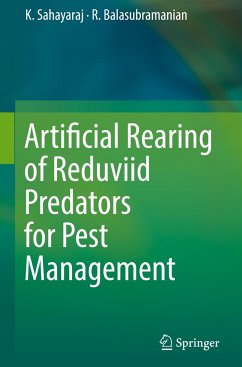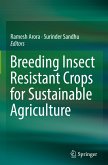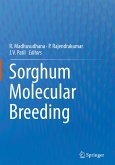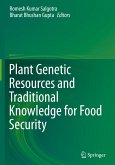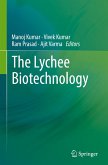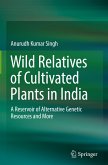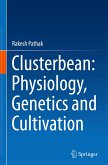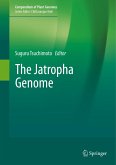This eye-opening book focuses on the development of techniques to mass-produce reduviid predators and important generalist predators, an endeavor that won't prove sufficient if the cost of commercialization is prohibitive. Advancing mass production to the level of economic feasibility is critical, so that these new technologies can compete in the open market.
This book commences with a review of the diversity of reduviid predators in agro-ecosystems world-wide, followed by chapters on their feeding behavior, biology, gut microbiota, their enzyme profile, body protein and genomics, and DNA and field evaluation reports. The field evaluation of reduviids, a worldwide undertaking, is addressed in the last chapter.
Each chapter includes a separate conclusion and future recommendations. Detailed information is also included on ingredients and artificial diet preparation, storage and the impact on predators. The artificial rearing of reduviid predator for crop pest management is an essential reference and teaching tool for teachers, researchers and extension workers in developed and developing countries alike, allowing them to produce reduviid predators and important natural enemies in biocontrol and bio-intensive integrated pest management programs.
The book offers an excellent resource for all those who are working on beneficial arthropod mass production. It is also an essential reference guide for agricultural and biological sciences scientists, entomologists, crop protection specialists, extension workers, and consultants.
This book commences with a review of the diversity of reduviid predators in agro-ecosystems world-wide, followed by chapters on their feeding behavior, biology, gut microbiota, their enzyme profile, body protein and genomics, and DNA and field evaluation reports. The field evaluation of reduviids, a worldwide undertaking, is addressed in the last chapter.
Each chapter includes a separate conclusion and future recommendations. Detailed information is also included on ingredients and artificial diet preparation, storage and the impact on predators. The artificial rearing of reduviid predator for crop pest management is an essential reference and teaching tool for teachers, researchers and extension workers in developed and developing countries alike, allowing them to produce reduviid predators and important natural enemies in biocontrol and bio-intensive integrated pest management programs.
The book offers an excellent resource for all those who are working on beneficial arthropod mass production. It is also an essential reference guide for agricultural and biological sciences scientists, entomologists, crop protection specialists, extension workers, and consultants.

